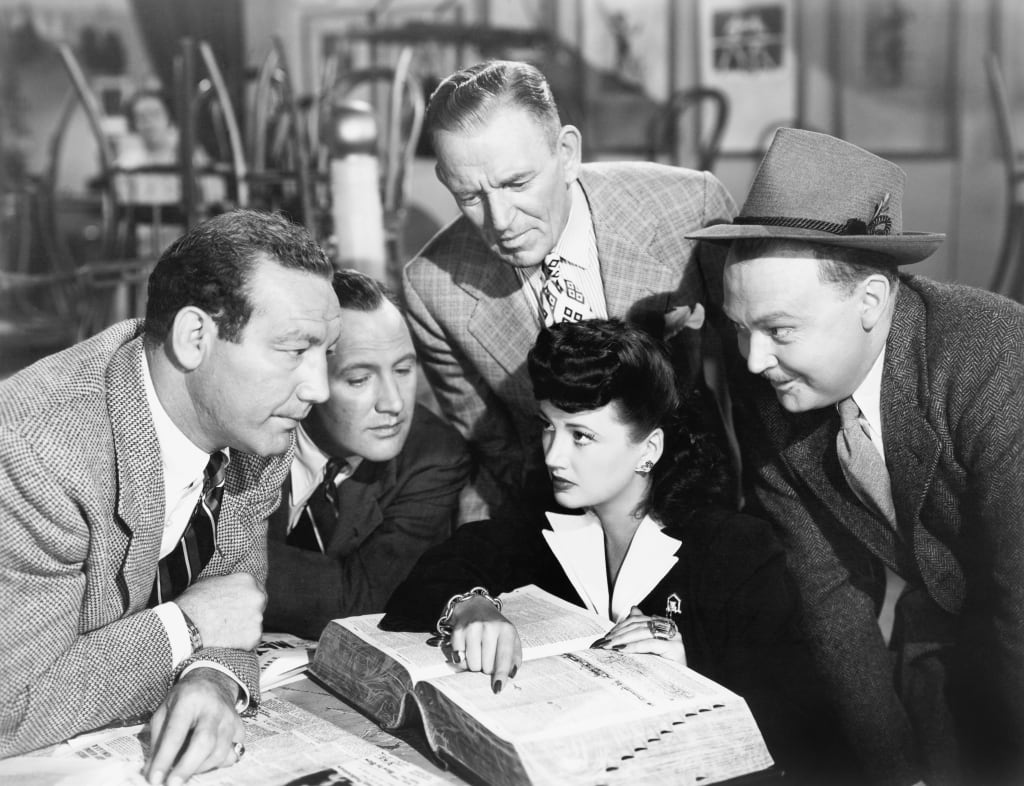Four Authors Who Will Transform Your Writing Voice
And the secret strategies they used

Want to write like the greats? Start here.
Developing a unique writing voice is your ticket to standing out in the crowded world of non-fiction. Your voice is your unique fingerprint, the one thing that sets your stories apart from the rest. Without it, your narrative risks blending into the background noise. So, how do you cultivate this distinct voice?
By learning from the masters.
Let's dive into the styles of Ernest Hemingway, Virginia Woolf, Gabriel Garcia Marquez, and Toni Morrison and see how you can apply their techniques to your writing.
Ernest Hemingway: The Art of Simplicity
The Insider Tip He Swore By
Hemingway's writing is all about clarity and simplicity.
He's known for his economical and understated style, which is often referred to as the "iceberg theory." This approach emphasizes concise sentences and straightforward language, leaving the deeper meaning beneath the surface.
Hemingway said, "There is nothing to writing. All you do is sit down at a typewriter and bleed."
Here's what to do next: Focus on writing one true sentence at a time. Strip away unnecessary fluff. Hemingway believed in getting to the point quickly and effectively. For example, instead of writing, "The sun was shining brightly in the clear, blue sky," you could say, "The sun shone in a clear sky."
Another step is to practice brevity.
Try to convey your message in the fewest words possible without losing its essence. This forces you to choose your words carefully and focus on what truly matters.
As Hemingway would say, "Write the best sentence you can, then move on to the next."
---
Virginia Woolf: Capturing the Flow of Thoughts
And Breaking Conventional Writing Rules
Virginia Woolf's stream-of-consciousness style is a powerful tool for diving deep into a character's mind.
Her writing often captures the continuous flow of thoughts and feelings, creating an intimate and immersive experience for the reader. However, Woolf's style can be complex, and it's easy to overcomplicate your narrative.
Woolf observed, "A woman must have money and a room of her own if she is to write fiction."
Here's how to implement her style: Aim to capture the natural flow of your ideas without overthinking it. Don't try to mimic Woolf exactly; let your own voice shine through. For example, instead of writing, "She was thinking about the past," you could write, "Memories of summer afternoons, the scent of roses, and the warmth of the sun flooded her mind."
Another tip is to use vivid, concrete imagery to make your thoughts come alive. Woolf's writing is rich with sensory details that draw the reader into the scene. Practice describing what your character sees, hears, and feels in specific, tangible terms.
---
Gabriel Garcia Marquez: Blending Reality with Fantasy
Why Mixing Magic with Reality Works
Gabriel Garcia Marquez is the master of magical realism, blending fantastical elements with deep human truths.
His stories often feature extraordinary events in a realistic setting, making the magic feel plausible and the reality more profound.
Marquez once wrote, "What matters in life is not what happens to you but what you remember and how you remember it."
Here's what to do next: Learn to weave fantastical elements into your narrative while keeping the core message grounded in reality. For instance, if you're writing about overcoming adversity, you might include a metaphorical battle with a dragon to symbolize the internal struggle. Describe the dragon's scales glinting in the moonlight and the fierce determination in your protagonist's eyes.
Another step is to experiment with symbolism and rich, descriptive language.
Marquez's writing is filled with symbols that add layers of meaning to the story. Think about how you can use symbols to represent key themes or emotions in your narrative. For example, a storm could symbolize turmoil, while a blooming flower might represent hope.
---
Toni Morrison: Creating Deep, Authentic Characters
And the Secrets to Making Them Unforgettable
Toni Morrison's characters are deeply layered and authentic, each with a rich backstory that influences their actions and decisions.
Her writing delves into the complexities of the human experience, making her characters relatable and unforgettable.
Morrison advised, "If there's a book that you want to read, but it hasn't been written yet, then you must write it."
Here's how to start: Develop detailed backstories for your characters. Consider their past experiences, fears, and desires. How do these elements shape their behavior and decisions? For example, if your character has a fear of failure, show how this fear impacts their actions and relationships. Describe the hesitation in their steps, the anxious glance at their surroundings.
Another tip is to dive into your characters' complexities to create relatable personalities.
Show their flaws and strengths, their struggles and triumphs. For instance, you might depict a character who is a brilliant strategist but struggles with self-doubt. Use specific scenes to illustrate these traits, like a tense moment where they have to make a crucial decision.
---
Bringing It All Together
And How to Start Writing with Confidence
Feeling overwhelmed by the styles of these legendary authors?
Don't be. Start small and practice integrating these techniques into your writing. Focus on clarity like Hemingway, the flow of thoughts like Woolf, the blend of reality and fantasy like Marquez, and the depth of characters like Morrison.
To get started, follow these simple steps:
- First, choose one technique to focus on for your next piece of writing. Practice it until you feel comfortable, then move on to the next.
- Second, read works by these authors to see how they implement their styles. Analyze their writing and take notes on what stands out to you.
- Third, apply what you've learned to your own writing. Write, revise, and refine until you find your unique voice.
Developing a distinctive writing voice takes time and effort, but it's worth it.
Your voice is what will make your stories resonate with readers and leave a lasting impact.
Ready to dive deeper?
About the Creator
Rick Martinez
* Professional Ghostwriter
* USA Today Bestselling Author
* Helping First-Time Authors Craft Non-Fiction Masterpieces
* Helping folks (just like you) realize their dream of writing their book
California born, Texas raised.
Enjoyed the story? Support the Creator.
Subscribe for free to receive all their stories in your feed. You could also become a paid subscriber, letting them know you appreciate their work.






Comments
There are no comments for this story
Be the first to respond and start the conversation.